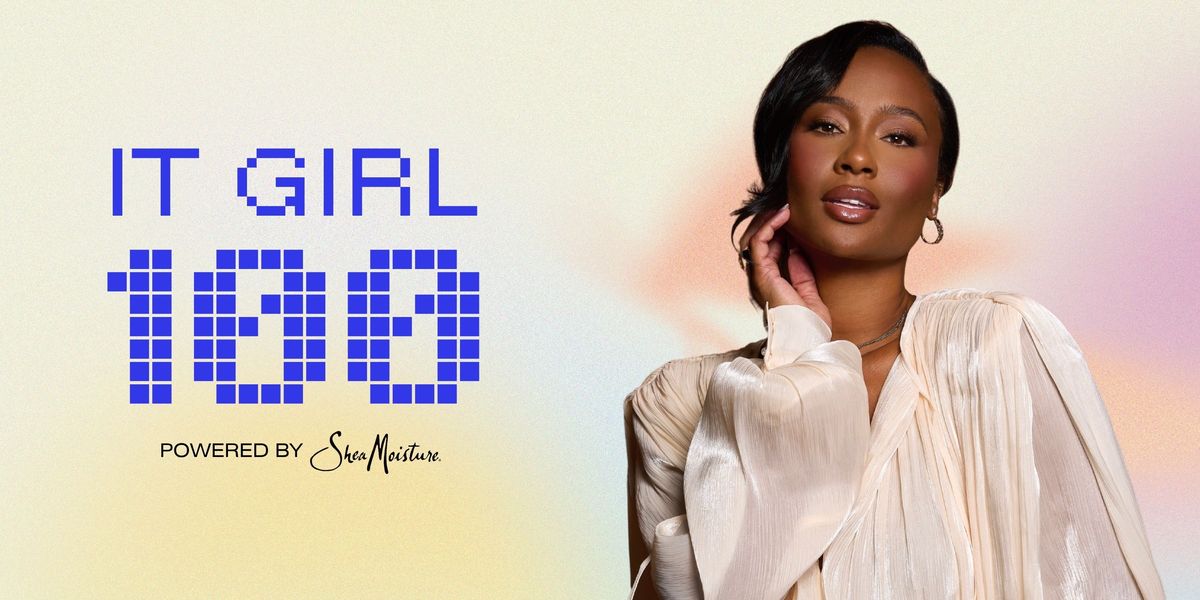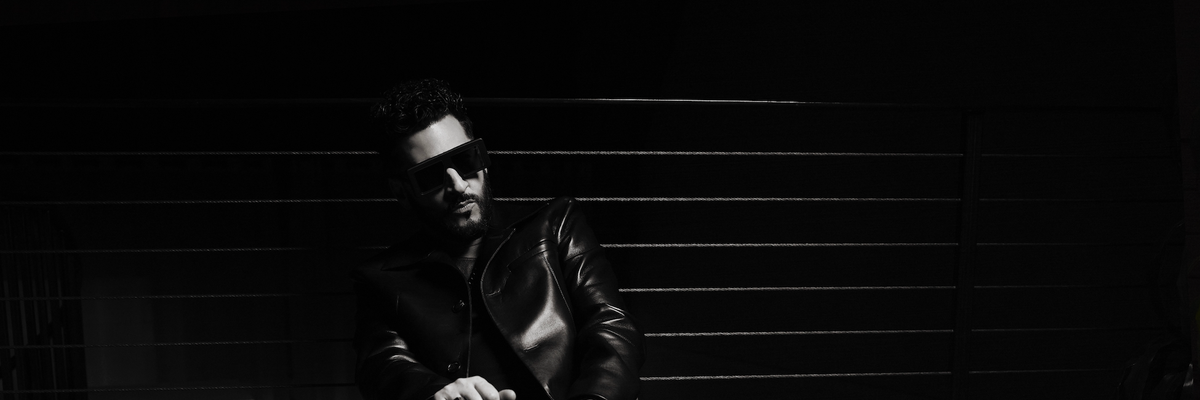The Crown Act Is Normalizing Natural Hair In The Workplace, And We're Here For It

This article is in partnership with CROWN Act.
Picture this: You just got your locs freshly twisted for an interview. You're looking sharp, slaying with your responses to questions, and your resume is amazing. You're a hit when talking with the team set to become your new coworkers. You then get a call that they want you for the job, but you'd need to get rid of the locs. Company policy.
Think this is a story from 1965? Nope.
In 2021, the issue of natural hair in the workplace shouldn't be, well, an issue, right? Consider a few key stats: According to the Dove CROWN Research Study, Black women are still 1.5 times more likely to be sent home from the workplace because of their hair, and 80 percent have expressed that they agree with the statement that they've had to change their natural hair to "fit in at the office."
Companies have even been protected by law in banning locs in the workplace, and there have been recent cases of schools dismissing or targeting students with braids, locs, or other natural styles deemed to be against policy or inappropriate. Talk about oppressive politics that teeter on the line of outright racism.

Getty Images
Well, a coalition of advocates, legal professionals, and politicians has been successful in combating the bully that is hair discrimination with the CROWN Act, which stands for "Creating a Respectful and Open World for Natural Hair." It's legislation that prohibits race-based hair discrimination, including the denial of employment and educational opportunities because of hair texture or protective hairstyles including locs, cornrows, box braids, twists or Bantu knots.
First introduced in January 2019 in California and signed into law in that state on July 3 of the same year, the inaugural CROWN Act expanded the definition of race in the Fair Employment and Housing Act (FEHA) and state Education Code in order to ensure that any employer or K-12 public and charter school could not penalize employees or students for their choice to rock their natural styles.
Led by the CROWN Coalition (which was founded by Dove, National Urban League, Color Of Change, and Western Center on Law & Poverty), the CROWN Act movement has grown, gaining support from activists and other state legislators to make discrimination on the basis of wearing one's natural hair illegal nationwide. Thirteen states, in total, have signed the legislation into law, and the coalition continues to fight for further expansion to all other states.

Getty Images
Just let the thought of you wearing braids, curls, or a 'fro being the sole reason you're dismissed from a job or not even considered a viable candidate at all. Or how about the one where your daughter, son, niece, or nephew is sent home from school, missing out on a proper education and being embarrassed and mentally scarred all because an administrator or teacher decided to enforce some archaic and divisive rule that separates the normalcy their natural hair from that of others?
Just fathom, further, companies totally dominated by one version of Eurocentric "appropriateness," and devoid of independent expression and diversity? Oh, and these workplaces can legally enforce discriminatory practices, all under the guise of preference, policy, or propriety.
In some states, this is still a very tragic reality, especially when the company or school is privately owned and operated. With the Crown Act, your right to be treated equally as well as the positive benefit of ensuring that companies are diverse and free for employees to express themselves are both protected.
You can sign the petition to support the expansion of the Crown Act here, and on July 3, participate in the National CROWN Day celebration via a full day of virtual engagements, community connections, and the inaugural CROWN Awards. Find out more information on the festivities here.
You can also show your support by using #PassTheCrown on social. Lend your voice to ending hair discrimination across the U.S. today!
Featured image by Getty Images
- Wear Your Crown: Here's How To Care For Your Huge Afro ›
- The Black Hair Experience Is The Ode To Self-Love We Didn't Know ... ›
Exclusive: Viral It Girl Kayla Nicole Is Reclaiming The Mic—And The Narrative
It’s nice to have a podcast when you’re constantly trending online. One week after setting timelines ablaze on Halloween, Kayla Nicole released an episode of her Dear Media pop culture podcast, The Pre-Game, where she took listeners behind the scenes of her viral costume.
The 34-year-old had been torn between dressing up as Beyoncé or Toni Braxton, she says in the episode. She couldn’t decide which version of Bey she’d be, though. Two days before the holiday, she locked in her choice, filming a short recreation of Braxton’s “He Wasn’t Man Enough for Me” music video that has since garnered nearly 6.5M views on TikTok.
Kayla Nicole says she wore a dress that was once worn by Braxton herself for the Halloween costume. “It’s not a secret Toni is more on the petite side. I’m obsessed with all 5’2” of her,” she tells xoNecole via email. “But I’m 5’10'' and not missing any meals, honey, so to my surprise, when I got the dress and it actually fit, I knew it was destiny.”
The episode was the perfect way for the multihyphenate to take control of her own narrative. By addressing the viral moment on her own platform, she was able to stir the conversation and keep the focus on her adoration for Braxton, an artist she says she grew up listening to and who still makes her most-played playlist every year. Elsewhere, she likely would’ve received questions about whether or not the costume was a subliminal aimed at her ex-boyfriend and his pop star fiancée. “I think that people will try to project their own narratives, right?” she said, hinting at this in the episode. “But, for me personally – I think it’s very important to say this in this moment – I’m not in the business of tearing other women down. I’m in the business of celebrating them.”
Kayla Nicole is among xoNecole’s It Girl 100 Class of 2025, powered by SheaMoisture, recognized in the Viral Voices category for her work in media and the trends she sets on our timelines, all while prioritizing her own mental and physical health. As she puts it: “Yes, I’m curating conversations on my podcast The Pre-Game, and cultivating community with my wellness brand Tribe Therepē.”
Despite being the frequent topic of conversation online, Kayla Nicole says she’s learning to take advantage of her growing social media platform without becoming consumed by it. “I refuse to let the internet consume me. It’s supposed to be a resource and tool for connection, so if it becomes anything beyond that I will log out,” she says.
On The Pre-Game, which launched earlier this year, she has positioned herself as listeners “homegirl.” “There’s definitely a delicate dance between being genuine and oversharing, and I’ve had to learn that the hard way. Now I share from a place of reflection, not reaction,” she says. “If it can help someone feel seen or less alone, I’ll talk about it within reason. But I’ve certainly learned to protect parts of my life that I cherish most. I share what serves connection but doesn’t cost me peace.
"I refuse to let the internet consume me. It’s supposed to be a resource and tool for connection, so if it becomes anything beyond that I will log out."

Credit: Malcolm Roberson
Throughout each episode, she sips a cocktail and addresses trending topics (even when they involve herself). It’s a platform the Pepperdine University alumnus has been preparing to have since she graduated with a degree in broadcast journalism, with a concentration in political science.
“I just knew I was going to end up on a local news network at the head anchor table, breaking high speed chases, and tossing it to the weather girl,” she says. Instead, she ended up working as an assistant at TMZ before covering sports as a freelance reporter. (She’s said she didn’t work for ESPN, despite previous reports saying otherwise.) The Pre-Game combines her love for pop culture and sports in a way that once felt inaccessible to her in traditional media.
She’s not just a podcaster, though. When she’s not behind the mic, taking acting classes or making her New York Fashion Week debut, Kayla Nicole is also busy elevating her wellness brand Tribe Therepē, where she shares her workouts and the workout equipment that helps her look chic while staying fit. She says the brand will add apparel to its line up in early 2026.
“Tribe Therepē has evolved into exactly what I have always envisioned. A community of women who care about being fit not just for the aesthetic, but for their mental and emotional well-being too. It’s grounded. It’s feminine. It’s strong,” she says. “And honestly, it's a reflection of where I am in my life right now. I feel so damn good - mentally, emotionally, and physically. And I am grateful to be in a space where I can pour that love and light back into the community that continues to pour into me.”
Tap into the full It Girl 100 Class of 2025 and meet all the women changing game this year and beyond. See the full list here.
Featured image by Malcolm Roberson
Jon B. Talks New Album, 18-Year Marriage & Being A Girl Dad
Since 1995, Jon B. has been entertaining us with his soulful voice, belting out R&B classics like “They Don’t Know” and “Someone to Love.” Despite his immense success, Jon decided to prioritize his family and take a step back from the music scene. He got married, and together, he and his wife had daughters. While he didn’t release any new music during this period, Jon remained dedicated to his fans by touring and maintaining his connection with them.
"I'm raising two daughters," he tells xoNecole exclusively. "One is 11 now, and one is 18, and both need their dad. Besides being a father, a rock star on the weekends, and a husband of 18 years, the real thing that kept me the busiest over the last 10 years was the road, keeping the bread on the table, and staying with my fans. Nevertheless, connecting with the fans and keeping that relationship alive. Regardless of whether I was on the radio every five minutes or whatnot. I just wanted to keep that relationship alive, and the best way to do that is just go and perform."
A decade later, Jon B. dropped a new album, WAITING on YOU. The album title alone is a nod to fans who have been waiting on him to release new music. The "Are You Still Down" singer collaborated with Rick Ross, Alex Isley, Tank, and Donell Jones on the album, giving fans a little bit of everything.
"Compiling this album was a labor of love because it was me sort of picking the gems. I wrote so many songs over the last 30 years. I wanted to go back and dust some old gems off and see if I can rework these records," he says. "Some of them are kind of reworks from back in the day, from back in the late '90s. I just kind of love the beat. One of the songs on my album is a vintage cut. I'll call it a vintage cut because I did it in '98. It's a song called "Pick Me Up."
"There's a little bit of the old and a little bit of the new, but WAITING on YOU, I felt was an appropriate name for the album, being that it was 10 years and it's really about my relationship that I have with my fans. Not only is it the relationship I have with my wife and my children, it's the extended relationship I have with with you guys, the listeners."
"There's a little bit of the old and a little bit of the new, but WAITING on YOU, I felt was an appropriate name for the album, being that it was 10 years and it's really about my relationship that I have with my fans."
His wife and kids are his biggest supporters and he shared that they sometimes give their opinion on his music. When it comes to his relationship with his wife, he says communication and patience are the keys to lasting. "I don't mean to sound like Dr. Phil up in here, but 18 years, going on 19, and it's like, I'm not counting, but I guess we're doing something right because we're very happy people," he says.
"I'm making music that reflects what I feel in my heart, which is pretty cool to share with the world now as a grown ass man instead of a guy who was growing up and had an old soul and I was figuring stuff out. I'm grateful for those records, but I really feel like these records are like a guy celebrating everything that I've been blessed to experience so far."
Let’s make things inbox official! Sign up for the xoNecole newsletter for love, wellness, career, and exclusive content delivered straight to your inbox.
Feature image courtesy







